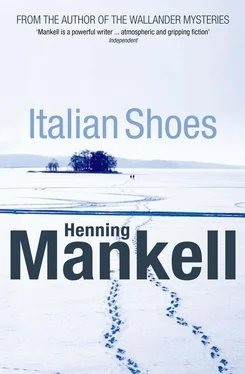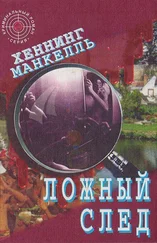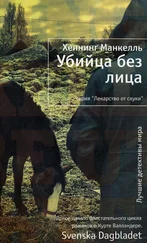As if reciting a verse of a hymn she had learned off by heart, she quoted a cardinal whose name might have been Borromeo — I’m not sure I heard it properly. He wrote that ‘I became aware of an artist in Rome who behaved badly, had disgusting habits, was always dressed in ragged and filthy clothes. This painter, who was notorious for his cantankerous ways and his brutality, produced no art of significance. He used his paintbrushes to produce only taverns, drunkards, sly prophetesses and actors. Hard though it may be to understand, he took pleasure in portraying these wretched people.’
Caravaggio was a supremely gifted artist, but also a very dangerous man. He had a violent temperament, and was always looking for trouble. He fought with his fists and sometimes with knives, and once murdered a man as a result of a quarrel over a point in a tennis game. But above all else, he was dangerous because in his paintings he confessed that he was afraid. The fact that he didn’t conceal his fear in the shadows made — and still makes — him dangerous.
Louise talked about Caravaggio, and she also talked about death. It is visible in all his paintings, in the hole made by a maggot in an apple on top of a basket of fruit, or in the eyes of someone who is about to be decapitated.
She said that Caravaggio never found what he was looking for. He always settled for something else. Such as the horses he painted, their frothing mouths an expression of the fury he had inside himself.
He painted everything. But he never painted the sea.
Louise said that she was so deeply moved by his work because it offered her proximity. There was always a space in his pictures where she could place herself. She could be one of the people in his canvases, and she didn’t need to be afraid that they might chase her away. She had often sought consolation in his paintings, in the lovingly drawn details, where his brushstrokes had become fingertips stroking the faces he conjured up in his dark colours.
Louise transformed the foul-smelling hamburger bar into a beach on the Italian coast on 16 July 1609. The heat is oppressive. Caravaggio is walking on the sands somewhere to the north of Rome, washed ashore in the form of human jetsam. A little felucca (whatever that might be — Louise never explained) has sailed away. On board the ship are his paintings and paintbrushes, his oils and a kitbag with his ragged and filthy clothes and shoes. He is alone on the sands, the Roman summer is stiflingly hot, perhaps a gentle breeze cools him out there at the water’s edge, but there are also mosquitoes swarming around, mosquitoes that bite him, injecting poison into his bloodstream. As he lies exhausted and curled up on the beach during the hot, humid nights, they bite him over and over again and the malaria parasites begin to multiply in his liver. The first attack of fever catches him unaware. He doesn’t know he’s going to die, but the paintings he hasn’t yet completed but that he carries inside him will soon become petrified in his brain. ‘Life is a dream impossible to pin down,’ he had once said. Or perhaps it was Louise who had invented this poetic truth.
I listened in astonished admiration. Only now had I seen who she really was. I had a daughter who knew something about what it means to be a human being.
I no longer needed to doubt whether the long-dead Caravaggio was one of her closest friends. She could communicate with the dead just as well as with the living. Perhaps even better?
She carried on talking until she suddenly fell silent. The man behind the counter had woken up. He yawned as he opened a plastic bag of chips that he tipped into the deep-fryer.
We sat there for a long time without speaking. Then she stood up and went to refill her cup.
When she came back I told her how I had amputated the wrong arm of a patient. I hadn’t thought about what to say, it simply tumbled out, as if it were inevitable that I should now describe the incident that I had hitherto thought was the most significant happening in my life. At first she didn’t seem to understand that what I was telling her had actually happened to me. But the penny dropped in the end. That fatal mistake had happened twelve years ago. I was given a warning. That would hardly have been the end of my career if I had accepted it, but I thought it was unjust. I defended myself by insisting that I had been placed in an impossible situation. Waiting lists were growing longer and longer, but at the same time cutbacks were being enforced. All I did was work, day in and day out. And one day the safety net failed. During an operation shortly after nine o’clock in the morning, a young woman lost her healthy right arm, just above her elbow. It was not a complicated operation — not that an amputation is ever a routine matter, but there was nothing to make me aware that I had made a fatal mistake.
‘How is it possible?’ Louise asked when I had finished talking.
‘It just is possible,’ I said. ‘If you live long enough, you’ll realise that nothing is impossible.’
‘I’m intending to live for a long time,’ she said. ‘Why do you sound so angry? Why do you become so unpleasant?’
I flung my arms out wide.
‘That wasn’t my intention. Perhaps I’m tired. It’s nearly half past six in the morning. We’ve spent the whole night here. We need a few hours’ sleep.’
‘Let’s go home, then,’ she said, getting to her feet. ‘The hospital hasn’t rung.’
I remained seated.
‘I can’t sleep in that narrow bed.’
‘Then I’ll sleep on the floor.’
‘It’s not worth going home. We’ll have to return to the hospital as soon as we get there.’
She sat down again. I could see that she was just as tired as me. The man behind the counter had fallen asleep again, his chin hanging down towards his chest.
The neon lights on the ceiling continued to stare down at us, like the scheming eyes of a dragon.
Dawn came as a relief.
We returned to the hospital at half past eight. It had started snowing, just a few flakes. I could see my tired face in the rear-view mirror. It made me wince, gave me a feeling of death, of inexorability.
I was on a downward path, hemmed in by my own epilogue. There were a few entries and exits still to go, but not much more.
I was so absorbed in my thoughts that I missed the turning for the hospital. Louise looked at me in surprise.
‘We should have turned right there.’
I said nothing, drove round the block and then took the correct turning. Standing outside the A&E entrance was one of the nurses who had received us during the night. She was smoking a cigarette and seemed to have forgotten who we were. In another age, I thought, she could have been in one of Caravaggio’s paintings.
We went in. The door to Harriet’s room was open. The room was empty. A nurse approached along the corridor. I asked about Harriet. She looked searchingly at us. We must have resembled a pair of woodlice that had crept out into view after a night spent under a cold stone.
‘Mrs Hörnfeldt is no longer here,’ she said.
‘Where have you sent her?’
‘We haven’t sent her anywhere. She simply went away. She got dressed and vanished.’
She seemed angry, as if Harriet had let her down personally.
‘But somebody must have seen her go, surely?’ I said.
‘The night staff kept checking regularly, but when they looked in at a quarter past seven, she had left. There’s nothing we can do.’
I turned to Louise. She made a movement with her eyes that I interpreted as a signal.
‘Did she leave anything behind?’ Louise asked.
‘No, nothing.’
‘Then she must have gone home.’
‘She ought to have informed us if she didn’t want to stay here.’
Читать дальше












